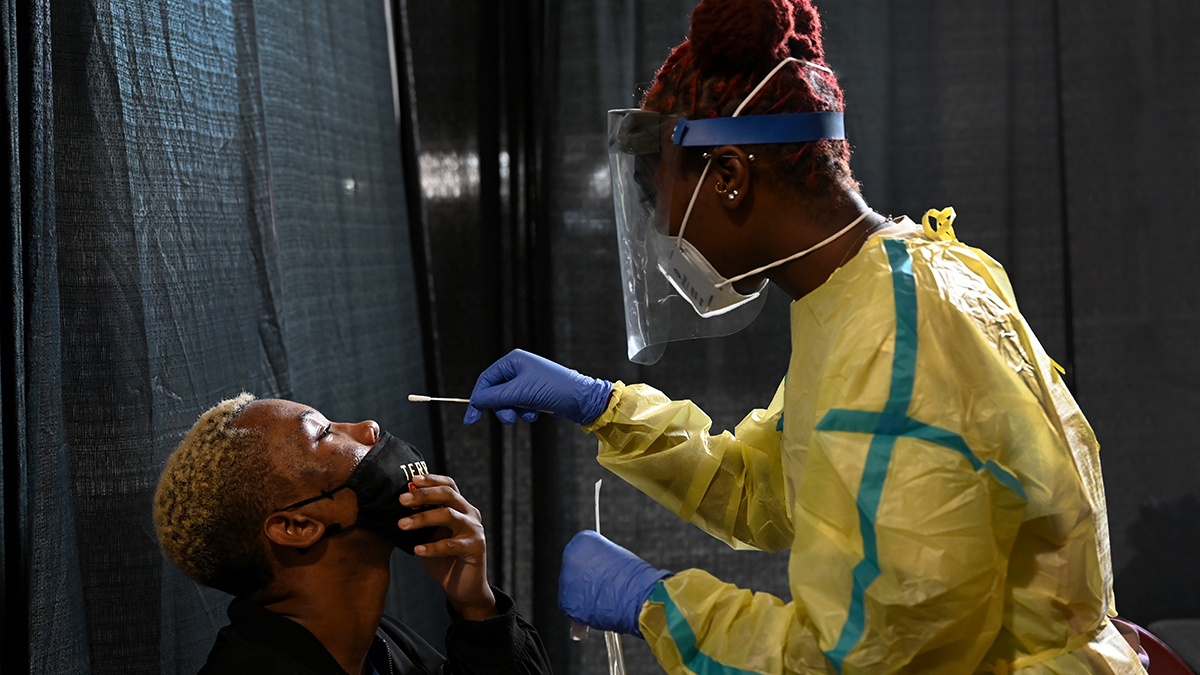Here's the latest on Aug. 17, 2020.
Counties across the area are working to address issues with social distancing.
Arlington County passed an emergency ordinance two weeks ago to prevent people from congregating in groups of three or more on sidewalks and in streets.
Prince William County is checking in on businesses to make sure they are following phase three reopening guidelines with inspections.
We're making it easier for you to find stories that matter with our new newsletter — The 4Front. Sign up here and get news that is important for you to your inbox.
What the Data Shows
Virginia and Maryland have both surpassed 100,000 confirmed cases.
D.C. has over 13,000 cases, bringing the total for the region to over 215,000.
The map below shows the number of coronavirus cases diagnosed per 1,000 residents.
Coronavirus Cases in DC, Maryland and Virginia
COVID-19 cases by population in D.C. and by county in Maryland and Virginia
Source: DC, MD and VA Health Departments
Credit: Anisa Holmes / NBC Washington
Local Coronavirus Headlines
- The monumental decision made by the Big Ten on Tuesday afternoon to postpone its fall football season was a blow to the hopes of coaches, players and fans in College Park. Read more.
- Many Maryland students will start the school year entirely online as the coronavirus pandemic continues — but local PTAs must meet in person, the state PTA says. Read more.
- The Fauquier County School Board voted Monday to switch to virtual-only instruction two weeks before students were expected to return to the classroom. Read more.
- New research by Children’s National Hospital in Washington, D.C., found racial disparities in how the coronavirus affects children. Read more.
Reopening Tracker
- Private and parochial schools in Maryland can choose when to reopen after a back-and-forth between county health officials and the governor. Read more.
- Prince George's County is revising its phase two reopening executive order due to an uptick in coronavirus cases, according to the county executive's office.
- Virginia entered phase three reopening on July 1, loosening restrictions on restaurants, stores, gyms and pools. Northam said more restrictions could be implemented if cases continue to grow.
- Prince George's County entered full phase two on June 23, allowing the MGM Casino and gyms to reopen.
- D.C. entered phase two on June 22, allowing indoor dining, gyms, libraries and houses of worship to reopen with restrictions.
- Montgomery County entered phase two on June 19, reopening with restrictions gyms, houses of worship, indoor dining and retail.
- Maryland entered phase two of reopening on June 10, permitting indoor dining, outdoor pools and outside amusements to reopen.
How to Stay Safe
There are ways to lower your risk of catching coronavirus. Here are guidelines from the CDC:
- Wear a snug-fitting mask that covers your nose and mouth.
- Avoid being indoors with people who are not members of your household. The more people you are in contact with, the more likely you are to be exposed to COVID-19. If you are indoors with people you don’t live with, stay at least six feet apart and keep your mask on.
- Wash your hands often, especially after you have been in a public place.
Sophia Barnes, Andrea Swalec and Anisa Holmes contributed to this report



